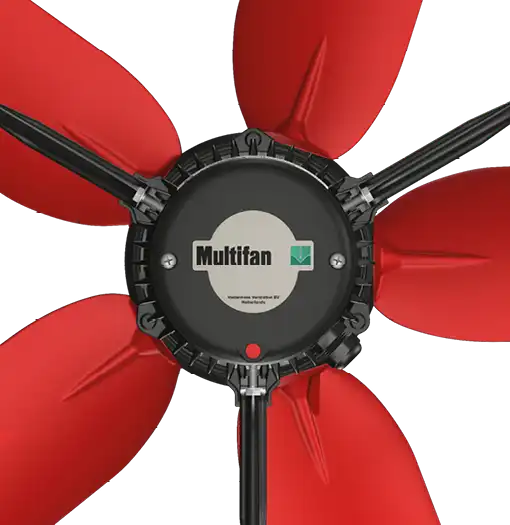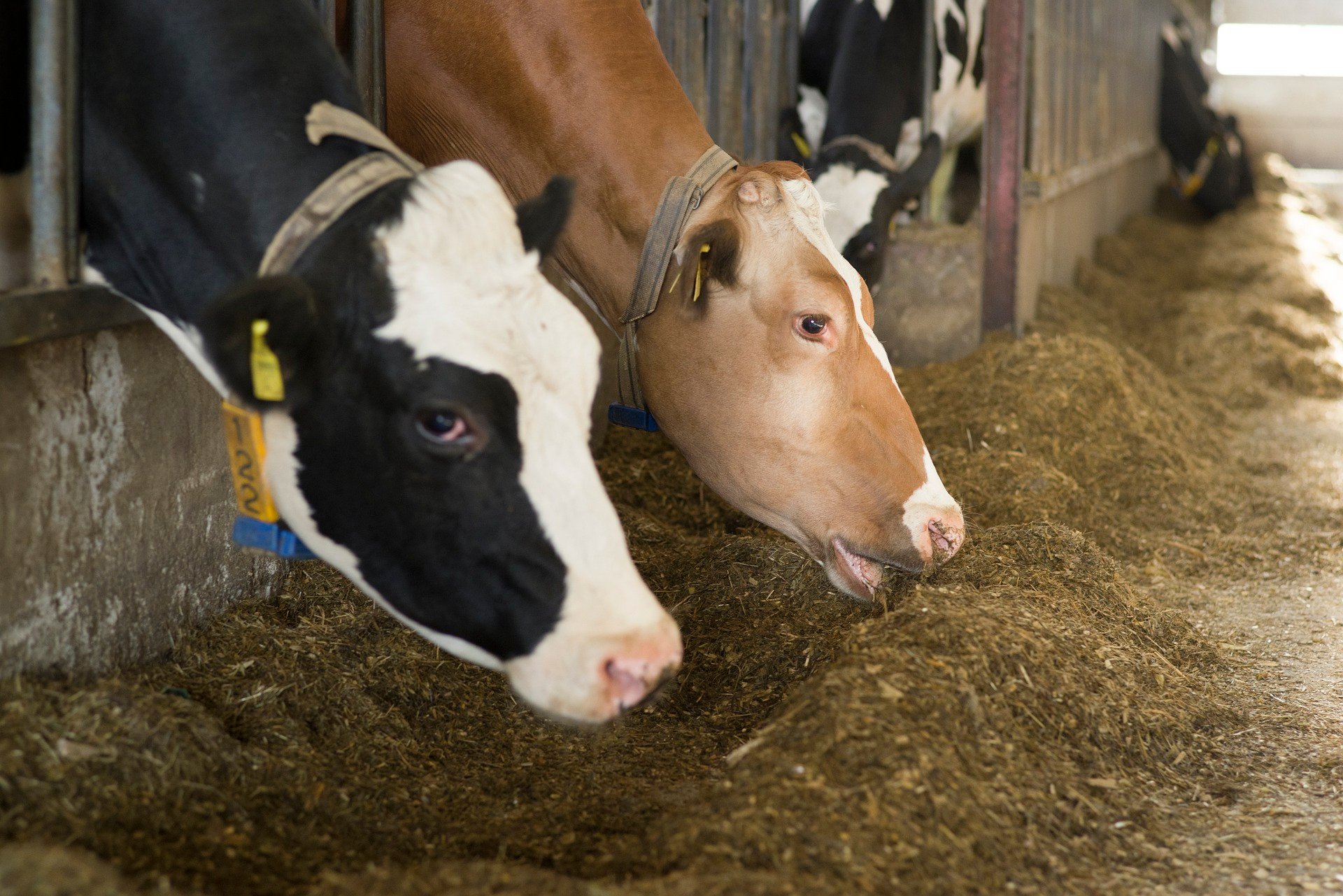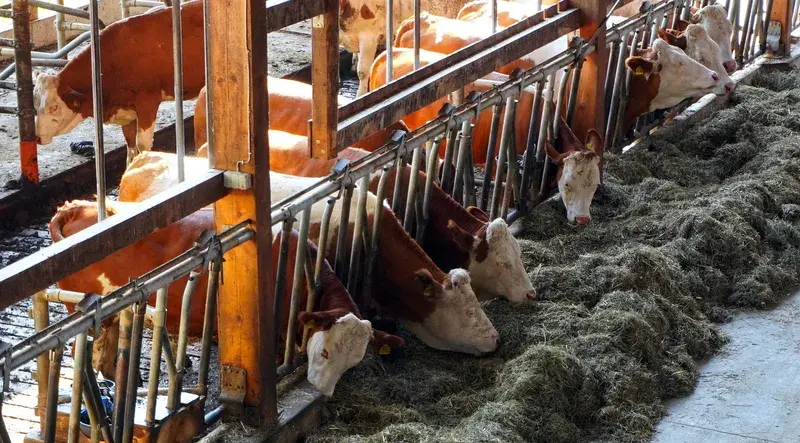Cows produce a significant amount of heat. One cow can produce as much as 6000 BTU's or 1800 watts of heat. Additionally, cows have a harder time dissipating this heat. When the temperature rises and the cow cannot release its heat, it can suffer negative effects on its health and productivity. This phenomenon is known as heat stress. (Heat Stress Relief For Dairy Cows)
Symptoms of heat stress
The most noticeable sign of heat stress is that cows start drinking more. In addition, they sweat and pant more. Cows sweat at only 10 percent of the human sweat rate. It is therefore difficult for them to get rid of the heat, which makes them sensitive to heat stress. Cows also produce more saliva during warm periods, causing them to lose a lot of moisture. This can lead to ruminal acidosis. Furthermore, in the event of heat stress, cows stand up to two hours more per day.
Effects of heat stress
In times of heat stress, feed intake is reduced by 8 to 12 percent or more. This reduction in feed intake reduces the production of volatile fatty acids in the rumen, resulting in a reduced production. Other side effects that are often seen in heat stressed cows include a reduction in fertility (tank cell count is increasing), an increase in embryonic loss, an increase in hoof problems (less lying down) and more cases of clinical mastitis. For more details on the effects of heat stress, have a look at our article focused on this topic.
On our page on heat stress in dairy cows, you will find all our other info on this topic in one place. If you want to know more about the solutions we have to offer, contact us and we will be happy to help you!
Source: https://www.ag.k-state.edu/outreach/ffa/Heat%20Stress%20Abatement%20-%20Cargill%20-%20April2010.pdf




